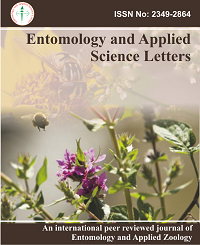
Applied Science Letters

The Editor is responsible for the final decision regarding the acceptance or rejection of articles. Editors will consider the peer-reviewed reports when making a decision but are not bound by the opinions or recommendations.
Editors are not involved in decisions about papers that they have written themselves. Peer-reviewed articles support and exemplify the scientific method. Therefore, it is important to agree upon standards of expected ethical behavior for all parties involved in publishing: the author, the journal editor, the peer reviewer, the publisher, and the society. A concern raised by a single peer reviewer or the editor may result in the manuscript being rejected. Peer review's primary purpose is to provide the Editor with the information needed to reach a fair, evidence-based decision. Authors receive peer review reports with the editorial decision on their manuscript. Review reports help authors revise their paper such that it may be accepted for publication. Reports accompanied by a recommendation to reject the paper explain the major weaknesses of the research; this will help the authors prepare their manuscript for submission to a different journal. As per these guidelines, failure to adhere to the above conditions will result in the editor-in-chief and publisher taking an appropriate correction. In extreme cases, offending authors may be banned from submitting to the journal in the future, or the issue will be reported to their institution’s ethics committee.
Our journal is guided by COPE guidelines, ensuring integrity and ethical standards in our editorial processes. However, we also prioritize our existing policies and principles, which encompass a commitment to academic rigor, fairness, and transparency. While we value the guidance provided by COPE, our independent decisions are rooted in a comprehensive framework that considers the unique aspects of our publication, the scholarly community we serve, and the evolving landscape of academic publishing. This approach enables us to uphold the highest standards of scholarly integrity while maintaining the autonomy necessary to adapt to emerging challenges and opportunities in the field.
